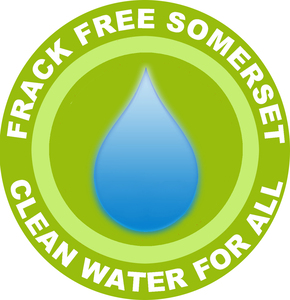500 signatures reached
To: Bristol MPs, Election candidates and Bristol Mayor
Stop Fracking in South Bristol and North Somerset

Please STOP this process NOW.
Why is this important?
The government has already issued Petroleum Exploration and Development Licenses to fracking companies. These licenses cover the whole area surrounding Chew Magna and the reservoirs which provide Bristol’s water supply and they extend as far as Parson Street in Bedminster ! At present fracking companies need to lease land (or seek agreements to drill) from public or private landowners and they need to obtain planning permission from the local council. However, the coalition government has already drafted an energy bill which proposes abolishing the requirement for planning permission.
UK Methane has put on hold its plans to extract shale gas using fracking close to the Hicks Gate roundabout on the A4 near Keynsham and the company has relinquished the license covering Chew Magna (PEDL 226). However, that work may start again at any time and the license can be renewed or taken up by another fracking company.
http://www.frackfreesomerset.org/
Why should we be concerned?
Fracking uses huge amounts of the local water supply and toxic chemicals such as Benzene, Toluene, Phenol and Formaldehyde to fracture impermeable rock and release shale gas or to obtain methane from coal seams underground. It involves drilling first vertically and then horizontally for up to one kilometre or more in both directions. Numerous wells are drilled to ensure continuing production, and this not only disfigures the landscape but also carries the risk of long-term contamination of water sources because all wells leak and degrade over time. Toxic slurry stored in holding ponds also causes air pollution and contaminates the land, especially during heavy rain or flooding.
A report for the U.S. Environmental Protection Agency states that exposure to chemicals used in fracking may result in headaches, nausea, insomnia, gastric disturbances, blurred vision and blindness in humans; may affect the brain / nervous system, the kidneys and the immune and cardiovascular systems, and may cause cancer (Colborn, T., Kwiatkowski, C., Schultz, K, and Bachran, M. 2011. Natural gas operations from a public health perspective. Human and Ecological Rick Assessment, 17: 1039-1056.
In the UK, Medact has described fracking as an “inherently risky” practice, and 18 leading health professionals state: “The arguments against fracking on public health and ecological grounds are overwhelming. There are clear grounds for adopting the precautionary principle and prohibiting fracking” (British Medical Journal (1st April 2015) Health Professionals call for urgent halt to fracking because of public health concerns).
Fracking can also cause subsidence and has been associated with earthquakes in Lancashire. Moreover, it makes climate change worse by increasing greenhouse gas emissions.
To understand what fracking could mean for individual households, look at the film Gasland on YouTube. You could also take a look at The Truth Behind the Dash for Gas, a DVD produced by Frack Free Somerset.
UK Methane has put on hold its plans to extract shale gas using fracking close to the Hicks Gate roundabout on the A4 near Keynsham and the company has relinquished the license covering Chew Magna (PEDL 226). However, that work may start again at any time and the license can be renewed or taken up by another fracking company.
http://www.frackfreesomerset.org/
Why should we be concerned?
Fracking uses huge amounts of the local water supply and toxic chemicals such as Benzene, Toluene, Phenol and Formaldehyde to fracture impermeable rock and release shale gas or to obtain methane from coal seams underground. It involves drilling first vertically and then horizontally for up to one kilometre or more in both directions. Numerous wells are drilled to ensure continuing production, and this not only disfigures the landscape but also carries the risk of long-term contamination of water sources because all wells leak and degrade over time. Toxic slurry stored in holding ponds also causes air pollution and contaminates the land, especially during heavy rain or flooding.
A report for the U.S. Environmental Protection Agency states that exposure to chemicals used in fracking may result in headaches, nausea, insomnia, gastric disturbances, blurred vision and blindness in humans; may affect the brain / nervous system, the kidneys and the immune and cardiovascular systems, and may cause cancer (Colborn, T., Kwiatkowski, C., Schultz, K, and Bachran, M. 2011. Natural gas operations from a public health perspective. Human and Ecological Rick Assessment, 17: 1039-1056.
In the UK, Medact has described fracking as an “inherently risky” practice, and 18 leading health professionals state: “The arguments against fracking on public health and ecological grounds are overwhelming. There are clear grounds for adopting the precautionary principle and prohibiting fracking” (British Medical Journal (1st April 2015) Health Professionals call for urgent halt to fracking because of public health concerns).
Fracking can also cause subsidence and has been associated with earthquakes in Lancashire. Moreover, it makes climate change worse by increasing greenhouse gas emissions.
To understand what fracking could mean for individual households, look at the film Gasland on YouTube. You could also take a look at The Truth Behind the Dash for Gas, a DVD produced by Frack Free Somerset.

